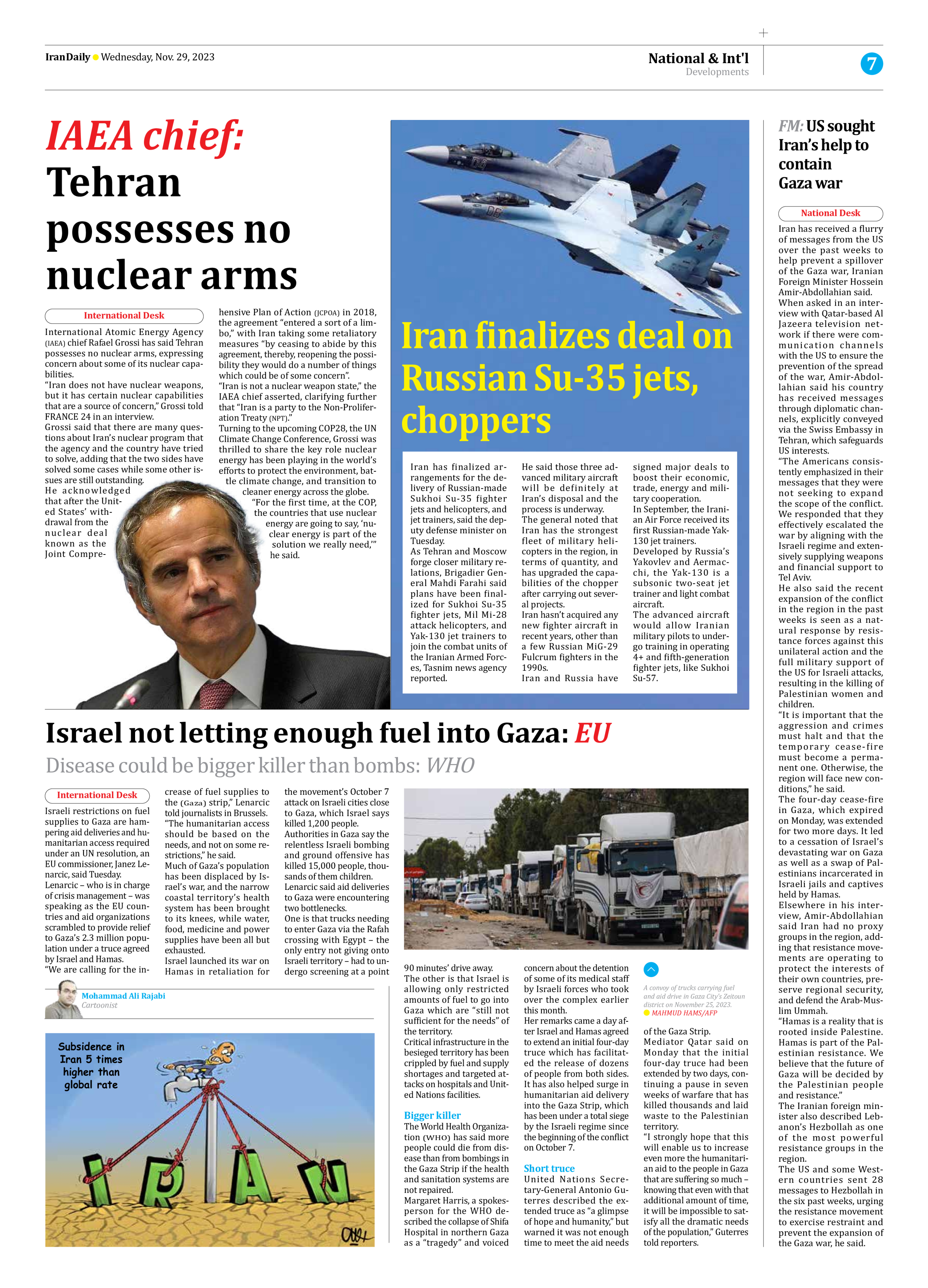
IAEA chief: Tehran possesses no nuclear arms
International Atomic Energy Agency (IAEA) chief Rafael Grossi has said Tehran possesses no nuclear arms, expressing concern about some of its nuclear capabilities.
“Iran does not have nuclear weapons, but it has certain nuclear capabilities that are a source of concern,” Grossi told FRANCE 24 in an interview.
Grossi said that there are many questions about Iran’s nuclear program that the agency and the country have tried to solve, adding that the two sides have solved some cases while some other issues are still outstanding.
He acknowledged that after the United States’ withdrawal from the nuclear deal known as the Joint Comprehensive Plan of Action (JCPOA) in 2018, the agreement “entered a sort of a limbo,” with Iran taking some retaliatory measures “by ceasing to abide by this agreement, thereby, reopening the possibility they would do a number of things which could be of some concern”.
“Iran is not a nuclear weapon state,” the IAEA chief asserted, clarifying further that “Iran is a party to the Non-Proliferation Treaty (NPT).”
Turning to the upcoming COP28, the UN Climate Change Conference, Grossi was thrilled to share the key role nuclear energy has been playing in the world’s efforts to protect the environment, battle climate change, and transition to cleaner energy across the globe.
“For the first time, at the COP, the countries that use nuclear energy are going to say, ‘nuclear energy is part of the solution we really need,’” he said.







